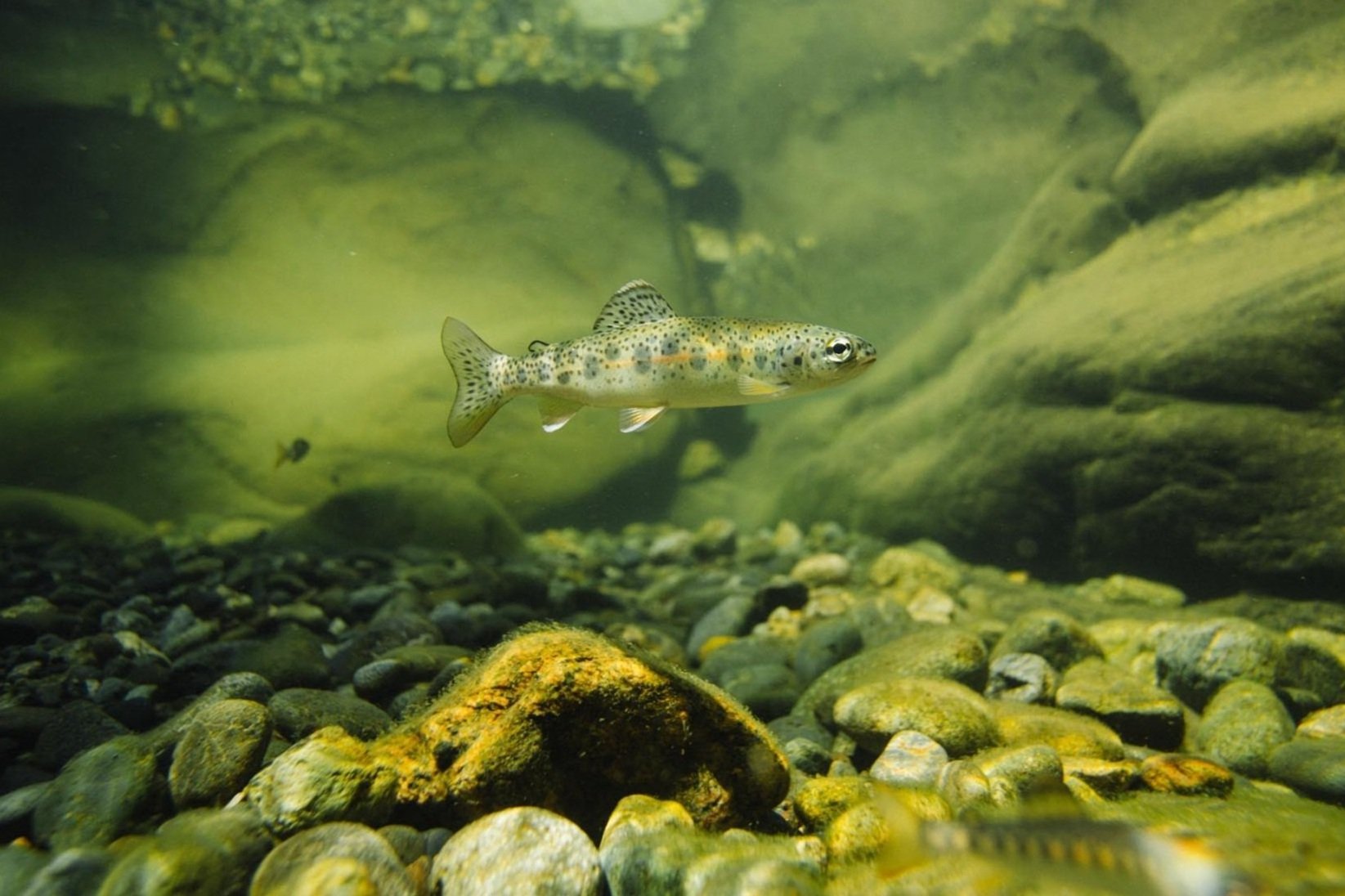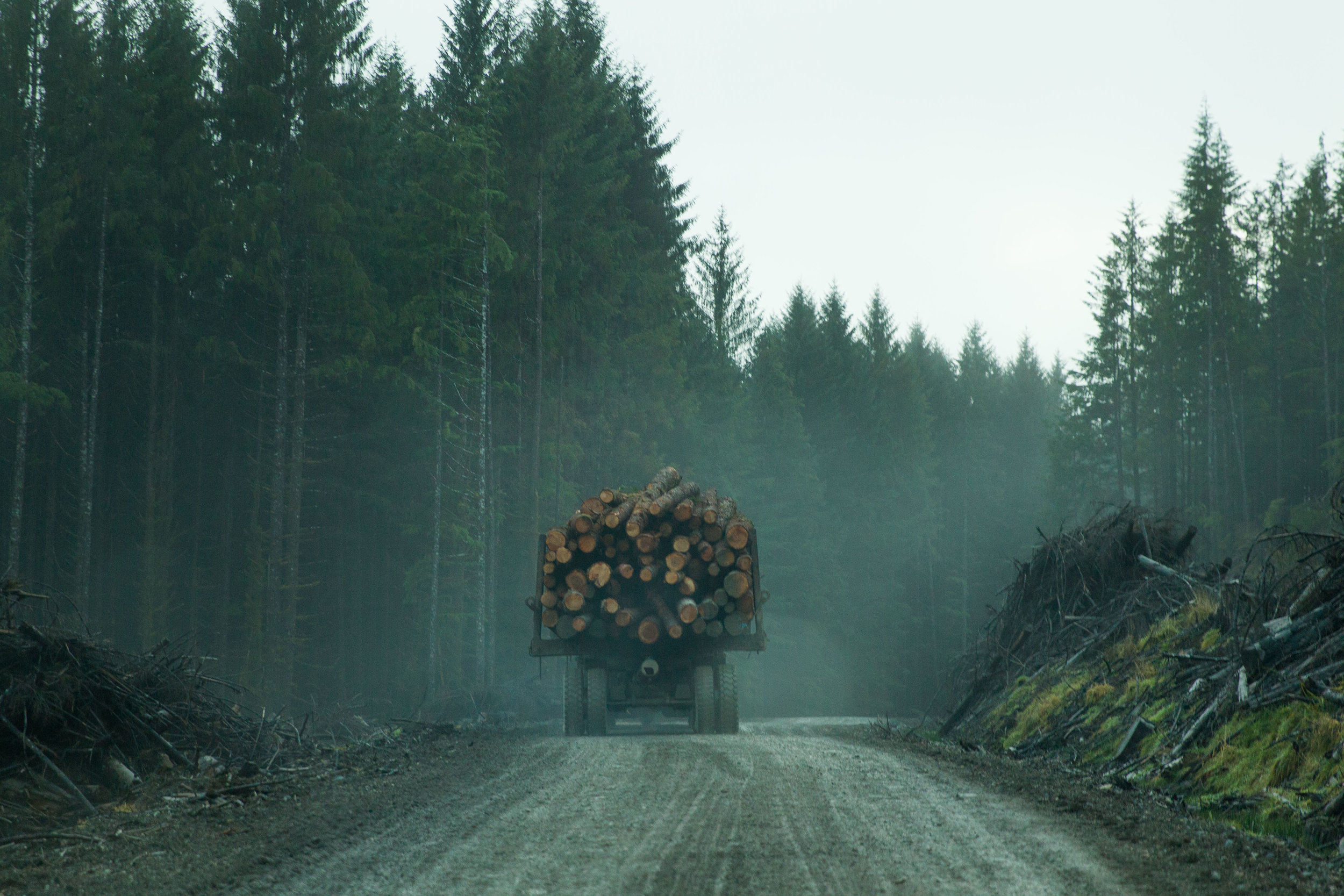At Redd Fish we believe effective restoration requires a holistic approach that understands the connectivity and complexity of interactions within an ecosystem; it addresses the root causes of habitat degradation and species decline and focuses on restoring the processes and relationships that govern and shape these environments.
We recognize that the health and abundance of these watersheds have been shaped by the management systems of the Nations since time immemorial. We humbly acknowledge Indigenous rights and title, and are grateful to operate in partnership with ʕaaḥuusʔatḥ (Ahousaht), hiškʷiiʔatḥ (Hesquiaht), tukʷaaʔatḥ (Toquaht Nation Government), ƛaʔuukʷiʔatḥ (Tla-o-qui-aht), and yuułuʔiłʔatḥ (Ucluelet Nation Government).
True recovery depends on Indigenous leadership, stewardship, and the reconnection of people to these watersheds, guided by traditional management principles. Stewardship in perpetuity.
Mission & Vision
Mission
Redd Fish Restoration Society is a registered charity focused on ecosystem restoration, research, and education. For over 29 years, Redd Fish has worked with permission and in partnership with the nuučaanuł Nations in their ḥaḥuułi (territory). Together our mission is to be guided by the best available science, technology, and Indigenous knowledge to restore damaged ecosystems, rebuild wild salmon stocks, and inspire an ethic of stewardship.
Vision
To nurture healthy and diverse ecosystems that support thriving communities through the restoration of aquatic and forest ecosystems, education, employment, and stewardship.
LEadership
The Redd Fish board of directors includes representation from all five nuučaanuł (Nuu-chah-nulth) Nations in our region, appointed by Chief and Council and hereditary leadership. Additionally, three seats are held by industry experts specializing in fisheries policy, research, and governance. This unique composition ensures that our initiatives are guided by the best available science, technology, and deep-rooted Indigenous knowledge, working together to restore damaged coastal ecosystems and rebuild wild salmon populations.
As a female-led organization, Redd Fish benefits from diverse perspectives and strengths in leadership, fostering inclusive decision-making and collaboration. Studies show that women in leadership roles tend to prioritize sustainability, community-building, and long-term outcomes—values that align with our mission of environmental restoration. This leadership approach also encourages broader community engagement and sets a powerful example for gender equity in traditionally male-dominated fields like fisheries and conservation.
Approach
To achieve our mission and follow our vision, we use the six strategies below to guide governance, management, and operations:
-
Using a holistic and process-based approach to watershed restoration guided by the understanding that hiišukʔiš cawaak, ‘everything is one’.
-
Taking a community-focused approach in every aspect of what we do. Responding to the needs of each community and Nation, respecting diversity. Meeting communities where they are at.
-
Supporting Nation-led stewardship. Providing opportunities for meaningful employment in each nation's ḥaḥuułi. Fostering stewardship in youth and connecting people with the land.
-
Advancing the science and practices of ecological restoration in BC, using the best-known available science and Indigenous Knowledge. Being a voice for restoration and actively engaging in policy and planning at a regional scale.
-
Foster a restoration-based economy by investing in restoration projects and communities that stimulate economic growth while promoting environmental stewardship.
-
Support Indigenous communities in upholding their rights, governance, and leadership, and fostering respect for all people and the land. Help advance UNDRIP by supporting nations' priorities and land use visions.
Reciprocity
“It’s the greatest feeling...I would see my grandchildren when I get off the boat (after work) and they'd ask me what I had been doing? and I told them, I'm out there fixing up the creeks so that you can have fish when you grow up.”
First Nations communities have endured the greatest impacts of resource development, witnessing firsthand the changes to their territories. When a community is socially, economically, and culturally tied to its environment, the loss of that environment is deeply felt.
At Redd Fish, we are dedicated to fostering relationships built on mutual respect, collaboration, and support. We actively work to implement the United Nations Declaration on the Rights of Indigenous Peoples (UNDRIP), ensuring our restoration projects honor and uphold the rights and knowledge of Indigenous communities. Our work is guided by principles of social, environmental, and economic equity, recognizing that a healthy environment is inseparable from social justice.
Redd Fish collaborates closely with the five nuučaanuł (Nuu-chah-nulth) Nations in our region: ʕaaḥuusʔatḥ (Ahousaht), hiškʷiiʔatḥ (Hesquiaht), tukʷaaʔatḥ (Toquaht Nation Government), ƛaʔuukʷiʔatḥ (Tla-o-qui-aht), and yuułuʔiłʔatḥ (Ucluelet Nation Government). These Nations guide and provide invaluable knowledge to our work, helping create training, employment, and capacity-building opportunities. For remote communities, these partnerships offer the chance for members to work within their own territories and contribute to restoring one of the coast's most culturally significant resources: wild salmon.
Recognizing that strong, long-term community relationships are key to successful restoration, Redd Fish also partners with Ha’oom Fisheries Society, Tla-o-qui-aht Tribal Parks, and the Maaqutusiis Hahoulthee Stewardship Society. By building connections with community members and implementing local outreach activities, we raise awareness and promote stewardship. Education is central to our restoration efforts, with community programs that include films, interpretive walks, workshops, job skills training, and support for sustainable community initiatives and other non-profits.
While the degradation of rivers and forests has been extensive, it is not irreversible. Steps can be taken to restore habitats and bring back wild salmon populations. Since 1995, Redd Fish has been working to accelerate the recovery of damaged ecosystems. Though change takes time, there is hope for these watersheds. By improving the health of our local watersheds, we strengthen both our environment and our communities.
Media
Bringing Back the Light
This film speaks to the methods, the practices and the importance of forest habitat restoration in British Columbia.
Wyatt Visuals and Burke Electric Media beautifully illustrate the work Redd Fish Restoration does and value wildlife habitat restoration. Funding for this film was provided by the Sitka Foundation.
Please help us by sharing the film on your social network. Thank you!
Hishuk-ish t’sawalk
Everything is one. A beautiful and insightful film that highlights stream ecology and the restoration work we are involved in on the west coast of Vancouver Island. We hope that you will help us by sharing the link with your network on Facebook, Twitter, or on your website or blog.
This film was written and produced by Drew Burke of Burke Electric Media (drewburke@hotmail.com) and filmed and edited by Mark Wyatt of Wyatt Visuals. Partial funding support for this film was provided by the District of Tofino.
Restoring the Atleo River
In 2013 Redd Fish worked with Uu-a-thluk and Ahousaht Fisheries to begin the restoration of the Atleo River near Ahousaht, BC. Wyatt Visuals and Burke Electric Media (Drew Burke of Language Tofino) joined us to film the crew as they spent a typical day in the bush. The film gives an insightful look at what restoration means to people that depend on salmon.
Funding for the project is provided by the Ahousaht-Mainstream Salmon Enhancement Subcommittee and the Training and Education Committee as administered by Mainstream Canada. Mainstream Canada and the Ahousaht Nation have a Protocol Agreement in place that provides funding towards salmon stream restoration within the Ahousaht Ha-houlthee. This program is managed through the Ahousaht Fish Farm, and specifically the Salmon Enhancement Subcommittee.















